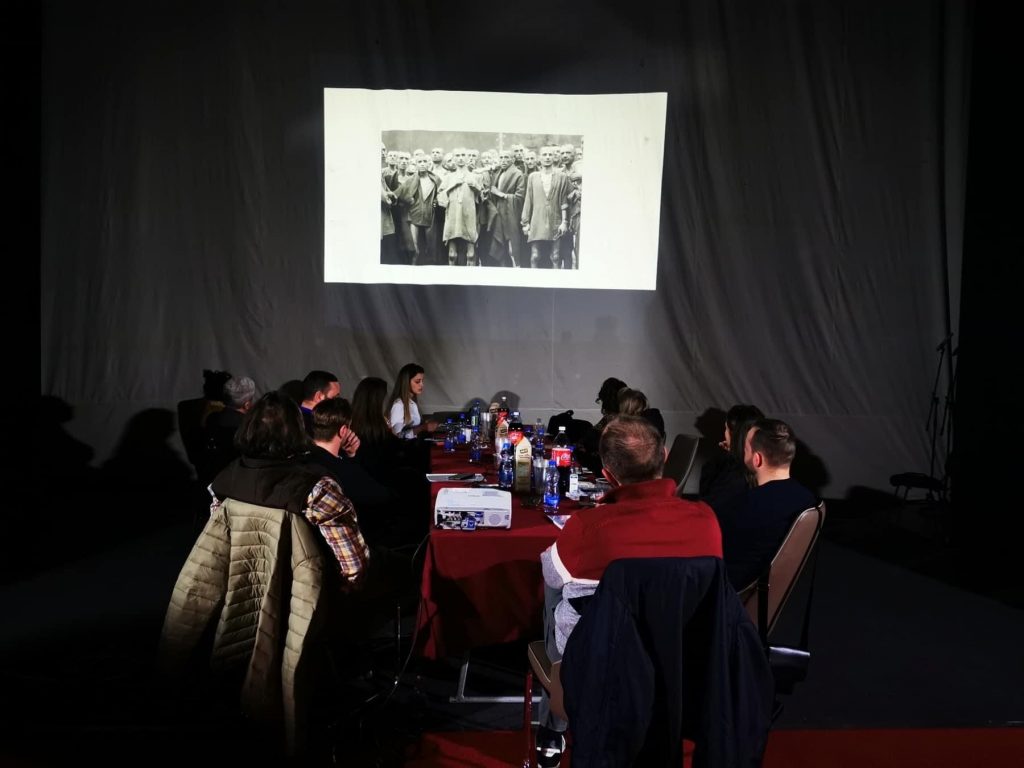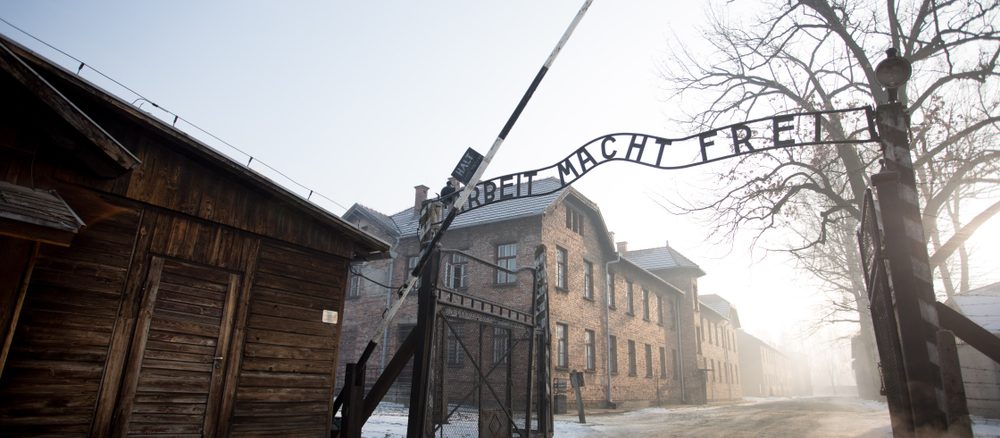Holocaust Memorial Day Part 1: WHEN ART HELPS PRESERVE THE TRUTH
January 27, 2022
Every year, on the International Holocaust Remembrance Day which is commemorated on 27 January the world recalls the greatest suffering in the history of mankind. It is a day when we remember the millions of people who were taken to concentration camps and were killed.
According to the United States Holocaust Memoria Museum:
The Nazis, who came to power in Germany in January 1933, believed that Germans were “racially superior” and they wanted to create a “racially pure” state. Jews, deemed “inferior,” were considered an alien threat to the so-called German racial community. During the era of the Holocaust, German authorities also targeted and killed other groups, including at times their children, because of their perceived racial and biological inferiority: Roma View This Term in the Glossary (Gypsies), Germans with disabilities, and some of the Slavic peoples (especially Poles and Russians). Other groups were persecuted on political, ideological, and behavioral grounds, among them Communists, Socialists, Jehovah’s Witnesses, and homosexuals.
Although a precise number of those who died is difficult to be determined between 1941 and 1945 two-thirds of Europe’s Jewish population perished in death camps in Nazi occupied Europe.
Forgetting the past is dangerous. The horrible events that took place during the Holocaust must be remembered so they are not repeated, and this is something that survivors of the Holocaust, those who witnessed the horror, stress to this day. Did we learn anything from the Holocaust? In wars after WWII similar horrors took place in different regions, including the Balkans in the most recent war, but does the society remember those horrors and does it recognize that history can be repeated?
“In order for personal memory, and then social collective memory, to exist as a relevant piece of information about the past, we would first have to “agree” with politicians in power on what the present is. As it becomes more and more slick day by day, and less and less factual, we get a collapsed value system,” Mia Knezevic tells RND 2.0.
Mia Knezevic who is a theatre director created the play ‘Heavenly Squad’ as her graduation project at the Serbian National Theatre. ‘Heavenly Squad’ is based on George Lebovic’s text and deal with the topic of Auschwitz. Knezevic is currently directing the play ‘Creation of Man’ at the National Theater in Leskovac, which will deal with media and artistic representation of human tragedy.

The photo was made while preparing the theather play ‘Creation of Man’
Knezevic believes that the memory of the Holocaust through art is extremely important for a society, primarily because it gives deeper value to the suffering as it focuses on personal truth. According to her, the essence, and the chance of the theater scene today lies in using this public space to address each other: honestly, coherently, without changing statements, with seriousness and empathy, to understand wars and life destruction through personal stories, as opposed to having stories about this served to us through a media-politicized narrative and historical revisionism.
“When I chose the theme of the Holocaust for my graduation play, for the needs of the acting-directing process – and primarily for human reasons, I interviewed Mrs. Katarina Katie Wagner, who was one of Novi Sad women who managed to survive a camp and was still alive at the time. I have recorded and preserved her shocking memories, which were key to the play. If that content disappears somewhere, what she said will remain forever in my memory and in the memory of all the actors in the play. Mrs. Katie Wagner, who was partly German, partly Jewish, told us what it looks like when you are taken to the camp at the age of 17. We were 22 and 23 years old and her story sounded unreal – not unconvincing – but very unreal. It is simply difficult for a person to understand that it is possible for someone to design a fascist factory and inflict such inconceivable evil on so many people. And that someone still survives it, and that in a certain way they can forgive,”, remembers Knezevic.
Knezevic says that it is difficult to have a clear view of younger generations perception of the Holocaust as a deeper insight is needed but her impression is that the statistics of violence in all forms, at all levels and towards various groups are devastating.
“Swastikas, murals of war criminals and graffiti are just the tip of the iceberg and an indicator that forgetting as our dominant feature is not a lonely factor, but that we also have a problem with interpreting what the current reality is. We do not have a clear picture of reality, although it is intuitively clear to all of us. Unfortunately, it was torn apart, made meaningless, and ridiculed heavily. However, we see on the streets that there is a need to touch and return, ” she notes.
Art is a potent field for the investigation of crimes, establishing the truth, for keeping the horrors of the Holocaust alive. Director Boris Lijesevic deals with these subjects in the plays he has directed: “Elijah’s Chair” by Igor Stiks, “The Reader” by Bernhard Schlink and “The Use of Man” by Aleksandar Tisma.
When the war was over, the German soldiers – the Nazis and SS – who took part in it returned home and continued with their daily activities as if nothing had happened.
“They became ‘good men’, exemplary citizens with democratic principles, and the war remained unspoken,” says Lijesevic whose plays dealt with that.
“Vera Kroner, the heroine of ‘The Use of Man’, travels by train to Germany after the war. She remembers cattle wagons in which it was not possible to breathe or defecate, in which soldiers pushed them with rifle butts on the way to Auschwitz. A few years later, there are clean trains, kind conductors, and they wish her a happy journey. And she recognizes in their voices those shouts, orders and people who have done her harm. Who are these people now? The same ones, but in peacetime circumstances. Only now they have been ordered to be nice and kind. These are Goetz and Mayer from the novel by David Albahari, who distribute candies to children, and then introduce them to the soul-destroyer (a killer truck that the Nazis used for mass murders during the Holocaust). And Vera is also wondering, “How can I forget? “How can she erase the “Feldhure” tattoo that was made for her in the camp?” Lijesevic tells RDN 2.0.
Lijesevic says that the post-war kindness is even scarier, because it is a disguise:
“The same people who are nice and kind are also ready to do unspeakable things, if only the circumstances were to change. Humanity is rare even today; it has always been a rarity. It was not in vain that Patriarch Pavle called on us to be human. That is an exception in the world”.
Lijesevic constantly deals with the feeling of guilt from a generation that has absolutely no merit to have it.
“Guilt is the story of my generation. I do not deal with it to convince other people, but for myself, to understand my life and what the time in which we live has brought to my generation. The one who committed an act never feels guilty. Very rarely. The people who took part in the wars are hard, poisoned, hurt… Maybe my generation and my generation should feel guilty in order to talk about it in public, ” concludes Boris Lijesevic.
Author: Snežana Miletić
Photo: Grabowski Foto/Shutterstock
